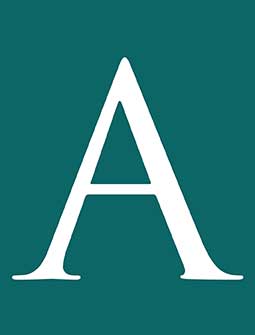
Real property or farming trades or businesses can withdraw their decision to elect out of Sec. 163(j)’s business interest expense limitation for a 2018, 2019, or 2020 tax year, the IRS said in guidance issued late Friday (Rev. Proc. 2020-22). Those businesses can also make late interest expense elections for those years.
The guidance also addresses how businesses can make certain other interest expense elections for 2019 and 2020 under emergency relief provisions included in the Coronavirus Aid, Relief, and Economic Security (CARES) Act, P.L. 116-136.
Real property or farming trades or businesses
One reason why an electing real property or farming trade or business might wish to withdraw its election out of the business interest expense limitation involves bonus depreciation. The Sec. 163(j)(7) election comes with a trade-off, which is that an electing business must depreciate certain property more slowly using the alternative depreciation system and is not eligible for bonus depreciation.
Now that 100% bonus depreciation can extend to qualified improvement property (QIP), retroactive to the effective date of the law known as the Tax Cuts and Jobs Act (TCJA), P.L. 115-97, some electing businesses may wish to change their minds about electing out of Sec. 163(j)’s interest expense limit for 2018, 2019, or 2020.
The CARES Act retroactively reduced QIP’s recovery period from 39 years to 15 years, thus making it eligible for 100% bonus depreciation through 2022. The March 27 legislation corrected a drafting error in the TCJA — the so-called retail glitch — that had prevented QIP from being immediately deductible.
Under Rev. Proc. 2020-22, an electing business that follows the steps outlined in the revenue procedure “will be treated as if the election was never made.” The business should file an amended federal income tax return, an amended Form 1065, U.S. Return of Partnership Income, or an administrative adjustment request, as applicable, for the tax year in which the election was made, with an election withdrawal statement. The deadline for doing so is on or before Oct. 15, 2021 (but not later than the applicable limitation period on assessment for the tax year for which the amended return is being filed), with an exception as provided in recently issued Rev. Proc. 2020-23 regarding the time to file amended Bipartisan Budget Act of 2015 (BBA) partnership returns for 2018 and 2019 tax years.
Separately, the revenue procedure addresses how to make a late Sec. 163(j)(7) election for 2018, 2019, or 2020.
CARES Act changes to the interest limitation for 2019 and 2020
The CARES Act also retroactively loosened the interest expense limitation to help speed economic relief to businesses during the COVID-19 crisis. For tax years beginning in 2019 and 2020, Sec. 163(j) is amended to increase the adjusted taxable income (ATI) percentage from 30% to 50%. Also, taxpayers can elect to use 2019 income in place of 2020 for the computation.
Rev. Proc. 2020-22 provides the time and manner for certain taxpayers to make relevant elections:
- To not apply the 50% ATI limitation;
- To use the taxpayer’s 2019 income to calculate the interest expense limitation in 2020; and
- For a partner to elect out of the 50% excess business interest expense rule.
Rev. Proc. 2020-22 is effective immediately.
For more news and reporting on the coronavirus and how CPAs can handle challenges related to the pandemic, visit the JofA’s coronavirus resources page.
For tax-related resources, visit the AICPA’s Coronavirus (COVID-19) Tax Resources page.
— Dave Strausfeld, J.D., (David.Strausfeld@aicpa-cima.com) is a Tax Adviser senior editor.
Leave a Reply